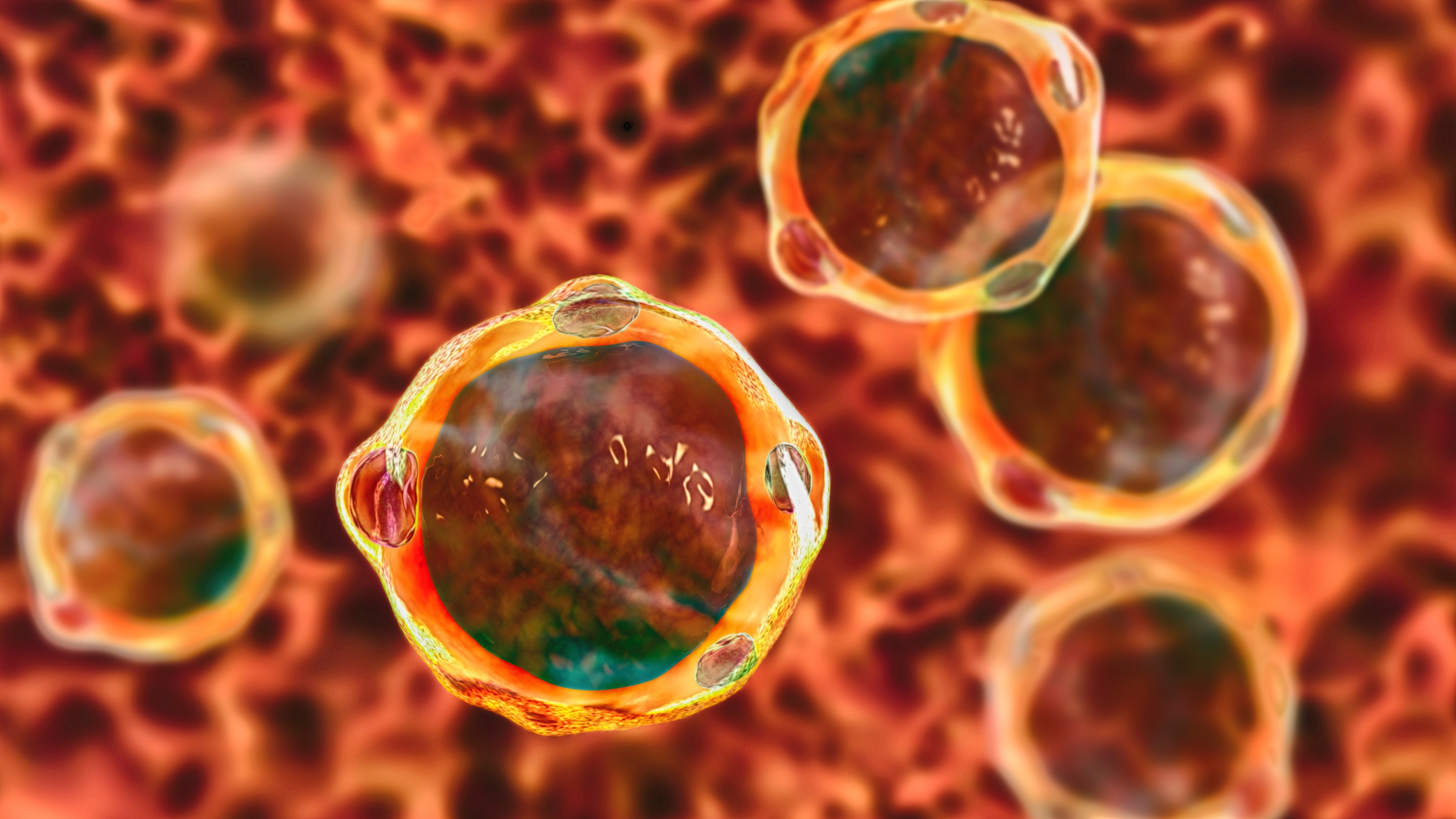Friend or foe? Study reveals evolution of controversial human gut microbe
14 July 2023

By Gillian Rutherford, Folio
Blastocystis is one of the most common microbes found in our guts but its role in human health is poorly understood. Blastocystis infection can lead to diarrhea, nausea, weight loss and fatigue, yet the microbe’s presence is also considered by some as a sign of a healthy gut.
“One in six people on the planet have it and we don't know if it can hurt you or not. Probably we should know how this thing works,” says Joel Dacks, professor of infectious diseases in the Faculty of Medicine & Dentistry and co-lead on new research published in Current Biology that seeks to illuminate the evolutionary biology of Blastocystis.
“We understand that the gut microbiome is an incredible modulator of human health. When it is healthy it seems to be quite protective, but when it's dysregulated it causes all manner of problems,” says Dacks, who is also an adjunct professor of biological sciences in the Faculty of Science.
Dacks co-led an international research team along with Anastasios Tsaousis, principal investigator of the Laboratory of Molecular and Evolutionary Parasitology in the School of Biosciences at the University of Kent in the U.K., seeking to understand how and why Blastocystis seems to be following an evolutionary path toward thriving in the oxygen-free environment of our guts — a path similar to that already taken by other parasites, such as those that cause vaginitis, amebic dysentery and beaver fever.
“They've all gone through this process, so by studying the different parasites independently, kind of like a historian, you can understand if there is something in common,” Dacks explains. “What are the greater forces? How does the shift happen? What happens to the cells and the genomes?
“Parasites are interesting because they're important to human health — and also because they're wonderfully weird.”